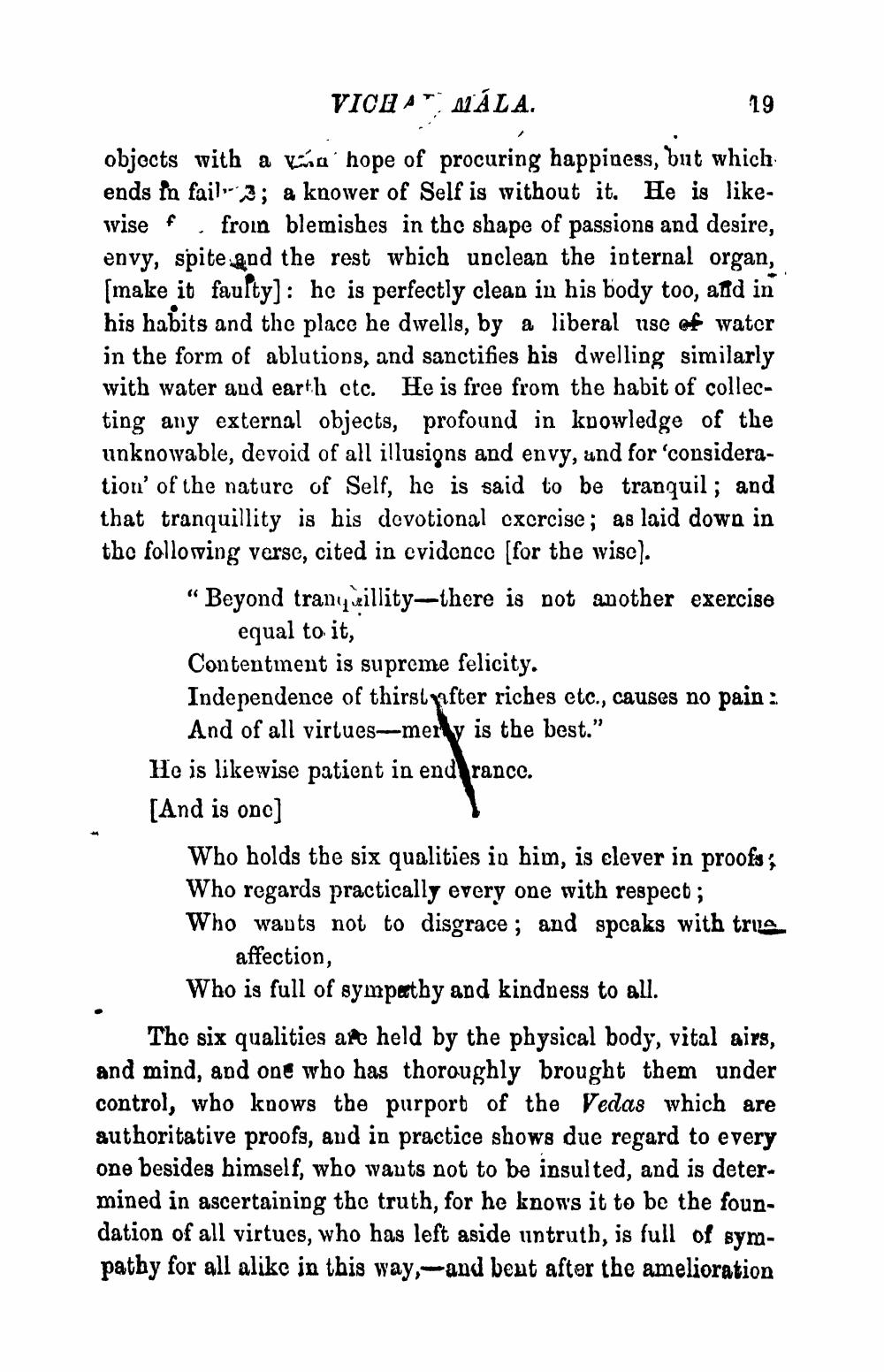________________
19
VICHA", MÁLA. objects with a wara' hope of procuring happiness, but which ends in fail. 3; a knower of Self is without it. He is likewise f. froin blemishes in the shape of passions and desire, envy, spite and the rest which unclean the internal organ, (make it faulty): he is perfectly clean in his body too, and in his habits and the place he dwells, by a liberal use of water in the form of ablutions, and sanctifies his dwelling similarly with water and earth ctc. He is free from the habit of collecting any external objects, profound in knowledge of the unknowable, devoid of all illusions and envy, and for consideration' of the nature of Self, he is said to be tranquil; and that tranquillity is his devotional cxcrcise; as laid down in the following verse, cited in evidence (for the wisc).
“ Beyond tranquillity-there is not another exercise
equal to it, Contentment is supreme felicity. Independence of thirst after riches etc., causes no pain :
And of all virtues-merly is the best.” He is likewise patient in end rance. [And is onc]
Who holds the six qualities io him, is clever in proofs; Who regards practically every one with respect; Who wants not to disgrace; and spcaks with trie.
affection, Who is full of sympethy and kindness to all.
The six qualities are held by the physical body, vital airs, and mind, and one who has thoroughly brought them under control, who knows the purport of the Vedas which are authoritative proofs, and in practice shows due regard to every one besides himself, who wants not to be insulted, and is determined in ascertaining the truth, for he knows it to be the foundation of all virtues, who has left aside untruth, is full of synapathy for all alike in this way,-and beut after the amelioration




